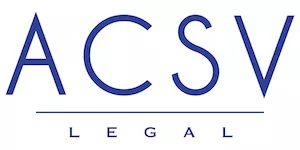- What proportion of transactions have involved a financial sponsor as a buyer or seller in the jurisdiction over the last 24 months?
Financial sponsors have been becoming more active in Vietnam in recent years. Especially buyout funds and growth PE funds have orchestrated some large deals in a growing number of domestic industries. As the Vietnamese PE market matures and thus becomes more accessible to foreign capital, these trends will likely continue.
Despite those recent trends, the number of financial sponsors in the Vietnamese market is still comparatively limited. The local banking and financial sectors are under strong scrutiny from the State Bank of Vietnam (SBV) and are subject to various restrictions. The direct involvement of local banks in Vietnamese transactions as buyers or sellers is, thus, an exception. Foreign financial sponsors are becoming keener to do deals in Vietnam. Nevertheless, they often fall short of their goals due to legal restrictions on cross-border transactions in some industries and lengthy licensing procedures for establishing foreign ownership through onshore-offshore structures.
PE investors prefer complex and financially engineered investment structures, such as convertible loans or preference shares. Other investors seek to structure their shareholdings via interposed regional or offshore Special Purpose Vehicles (SPVs) to optimise tax and benefit from flexible legal systems. Larger buyout funds may employ multi-layered offshore structures to allow for various levels of debt and inter-creditor subordination.
- What are the main differences in M&A transaction terms between acquiring a business from a trade seller and financial sponsor backed company in your jurisdiction?
The main difference in M&A transactions when acquiring a target from a trade seller compared to financial sponsor-backed sellers is that these players have different commercial perspectives on the deal. While buying equity from trade sellers or financial sponsor-backed companies follows the same procedure and documentation, the risk allocation of the deal tends to differ in both variants. Buying from a trade seller often allows a broader range of negotiation on the core parts of the underlying documentation (e.g., the Share Purchase Agreement) compared to implementing a similar deal with a PE firm. Because PE firms want to return capital to investors, they are more willing to give a (moderate) discount on allocating risks in the deal to exit on their envisaged terms. Post-closing risks form a specific example for this phenomenon.
Therefore, representations and warranties and the scope of indemnities will be different when acquiring businesses from a trade seller and a financial sponsor-backed company. From a practical perspective, owner-operators or trade sellers tend to have a much more detailed understanding of the risks associated with their businesses. They are thus more familiar with the general issues of their industry and able to assess the impending operative or regulatory risks for their companies.
Consequently, they are generally more willing to accept post-closing risks and be tied in by ongoing obligations. The fact that they have no obligation to crystalise carried interest for backing investors provides further liberty to trade sellers. It allows them more leeway in negotiations than PE firms may avail themselves of in similar transactions.
- On an acquisition of shares, what is the process for effecting the transfer of the shares and are transfer taxes payable?
In Vietnam, the procedure for transferring shares to an offshore entity may include various licensing procedures, including M&A approval. This is tied to legally defined thresholds that impose the involvement of Vietnamese government agencies.
The Ministry of Industry and Trade (MoIT) is the governing authority for issues of merger control. New laws have recently consolidated the Competition Investigation Agency of Vietnam, the Competition Authority of Vietnam, and the Vietnamese Competition Council under the National Competition Committee (NCC). The new NCC will now be solely responsible for monitoring and investigating breaches of competition law and enforcing any related regulatory sanctions. Vietnam's new Law on Competition (LoC) came into effect on 1 July 2019. It aims to control competition by outlawing restraining agreements, market dominance, economic concentration, and unfair practices. Local and foreign buyers of Vietnamese targets have a potentially restrictive impact on competition in the domestic market. This impact is defined as any kind of influence that is bound to exclude, reduce, or hinder competition in the market.
PE investors need to navigate the new rules on economic concentration when contemplating investment activities. Outcomes are sometimes hard to predict because the new laws are less concise than the previous ones and, since their implementation, provide less precedence. In particular, concrete thresholds for economic concentration have been removed under the new LoC and redefined more vaguely.
Capital gains from the sale of shares are subject to Vietnam's Corporate Income Tax (CIT), set at 20 per cent. The taxable amount is the difference between the proceeds of the sale minus the investment costs and transactional expenses. The Vietnamese seller has a legal duty to withhold the applicable tax amount and to cooperate with Vietnamese tax authorities. However, if buyer and seller are both offshore entities, the local target company is responsible for withholding tax.
Gains earned by a foreign investor from selling securities (i.e. bonds or shares of public Joint-Stock Companies (JSCs), whether listed or non-listed) are subject to CIT at a deemed rate of 0.1 per cent of the gross sales proceeds (replacing the capital gains tax applicable on net gains). Tax treaties may provide some protection from applicable taxes. Utilising an offshore holding company may provide additional opportunities for tax mitigation on exit, depending on the strategy and origin of the investor. However, anti-avoidance rules are applied by the Vietnamese tax authorities with a broad interpretation. Government agencies carry out public scrutiny of company structures and request the disclosure of the fund's origin. As a practical issue, claims made by taxpayers under tax treaties are not reviewed or approved by local tax authorities until a later tax audit. The time-lapse between the tax payment and subsequent reimbursement can, therefore, be quite significant.
A new draft CIT law was released proposing to tax the transfer of capital at two per cent on gross sales proceeds (not dependent on gain/loss position). This would be applied for both direct and indirect share transfers. It further proposed that an internal group restructuring exercise at a no-gain-no-loss position would not be subject to capital assignment tax. However, the legislation is still in draft form and the exact timeline for its discussion and ratification is unconfirmed.
- How do financial sponsors provide comfort to sellers where the purchasing entity is a special purpose vehicle?
Closing PE deals in Vietnam can be problematic because there is no clearly defined closing mechanism for these transactions. In more developed jurisdictions, the closing of a transaction can be performed in a single day. Buyers can make same-day payments, and shares can be transferred without having to loop the proposed deal through public approval procedures. In Vietnam, however, transfers cannot be carried out only by executing a stock transfer and updating the relevant statutory registers. It is a particularity of Vietnamese law that settlement cannot occur at the same time. This increases the risk of the seller not getting paid and is, therefore, a considerable settlement risk. In particular, investors may be reluctant to fund an acquisition until the target's licenses have been updated to indicate new shareholders (i.e. the buyer).
On the other hand, however, cautious sellers can be reluctant to submit application dossiers to the competent authorities to effect the change of ownership until they have received the (full) consideration. Using escrow arrangements with local banks is one possible solution. However, Vietnamese law and the practical requirements of local financial institutions create additional uncertainties and stretch transaction timelines.
- How prevalent is the use of locked box pricing mechanisms in your jurisdiction and in what circumstances are these ordinarily seen?
Consideration structures vary from deal to deal. Vietnam regularly witnesses the use of locked box pricing mechanisms. Meanwhile, other common pricing mechanisms are completion accounts and fixed-price structures.
- What are the typical methods and constructs of how risk is allocated between a buyer and seller?
Vietnamese transaction documents will often allocate the regulatory transactional risk via conditions precedent, subsequent or post-closing undertakings.
- How prevalent is the use of W&I insurance in your transactions?
The use of Warranty and Indemnity (W&I) insurance is quite common in Vietnam and is gaining traction, especially in larger PE deals. Already, many outgoing PE firms pay W&I insurance premiums that enable them to return funds to Limited Partners (LPs) and crystalise carried interests.
- How active have financial sponsors been in acquiring publicly listed companies and/or buying infrastructure assets?
The Vietnamese capital markets are now getting more considerable exposure to sizeable international PE deals. Especially in the last two years, Vietnam has witnessed many large PE transactions involving foreign financial sponsors. The targets of these acquisitions have primarily been publicly listed companies. Foreign PE buyers are less likely to invest in existing Vietnaesese infrastructure assets. Infrastructure projects typically take the shape of cooperation between foreign investments and local public companies or state-owned entities. As Vietnam's infrastructure widely falls behind international quality standards and maintenance, foreign financial sponsors tend to refrain from buying existing Vietnamese infrastructure assets.
According to Vietnamese enterprise law, the only form of publicly-traded company is the JSC. A JSC is a commercial enterprise with an assigned charter capital that is divided into equal portions (shares). There can be no fewer than three shareholders. The maximum number of shareholders in a JSC is not limited by law. Foreign shareholders can be sole owners of a JSC within the confines of restrictions imposed by the governing investment laws. Ownership can also be split between local and foreign investors in a cross-border partnership. A Vietnamese JSC may issue shares and publicly list them on the Vietnamese Stock Exchange, subject to eligibility and fulfilling the conditions for an Initial Public Offering (IPO).
A public company under Vietnamese law qualifies as such if it has a contributed charter capital of at least 30 billion VND (roughly USD 1.3 million) and at least 10 percent of the voting shares are held by at least 100 non-major shareholders, or if it has successfully carried out the registration of an IPO with the competent authority.
There are restrictions on local companies' capital held by foreign investors in certain sensitive sectors, which are listed in Vietnamese investment law. Unfortunately, the law does not give any specific guidance on the acquisition of assets or merger transactions to which a foreign investor is a party.
Vietnam is in the process of creating increasingly favourable conditions for investment into its overall infrastructure by promoting Public-Private Partnerships (PPP) and revising its laws to include foreign bidders in publicly-funded infrastructure projects.
On the back of these developments, international PE investors have recently started to shift their focus to Vietnam. The growing confidence in its market is thanks to Vietnam's economic success, built on a foundation of more than three decades of political stability and almost uninterrupted GDP growth. The domestic PE market hit USD 3 billion in 2018 and USD 1.9 billion in 2019 (excluding real estate and infrastructure) - a multiple of the volumes seen in the preceding five years.
The volume of PE deals reached a record high in 2020. This trend continued into the first three quarters of 2021 with an impressive total of 41 announced deals (equal to the 2020 figures). A quarterly deal value of USD 2.5 billion in Q2 of 2021 marked the second-highest quarterly value on record since the USD 5.2 billion mark struck in Q4 of 2017.
- Outside of anti-trust and heavily regulated sectors, are there any foreign investment controls or other governmental consents which are typically required to be made by financial sponsors?
From a legal perspective, the starting point for all foreign PE investment into Vietnam is market access. The critical question for market access in Vietnam is whether an investment is prohibited, subject to certain conditions, or unrestricted.
To view the full article please click here.
Previously published in The Legal 500 Country Comparative Guides
The content of this article is intended to provide a general guide to the subject matter. Specialist advice should be sought about your specific circumstances.




